Noodles are hot. All over the United States and in Portland restaurants, too.
Just look at the feverish following Pai Men Miyake, The Honey Paw and newcomer Ramen Suzukiya have for their noodles – especially the bowls of homemade ramen that put to shame the instant, high-sodium, cellophane-wrapped bags of dried, squiggly noodles and flavor packets that you popped into the microwave for a late-night snack when you were in college.
Enter Papa’s Juicy Noodles, which may never be able to compete with those high-end restaurant selections but will satisfy a nostalgic craving for instant ramen without all the sodium and other bad stuff. Papa’s, produced right here in Maine, can’t be called ramen, actually. Think of it as an Italian version of ramen noodles.
Preparing a bowl of Papa’s is not quite as easy as tossing a package of ramen noodles in the microwave, but it’s still fast: You simply melt a tablespoon of butter with a tablespoon of olive oil in a pan, stir in the packet of herbs, then let that heat while you boil the noodles. Mix it all together, add 4 tablespoons of Parmesan, and you have dinner for two or a side dish for four. Capisce?
Like many Maine-made products, these noodles have an interesting backstory.
Papa’s Juicy Noodles is named for the late Armando Polito, who taught Spanish, French and Latin at Deering High School for 34 years. When his grandchildren were small, some 30 years ago, they often came over to his house to visit during the summer, and they’d eat packaged ramen noodles for lunch. One day, he happened to pick up a package and read its contents. Then he blew his top.
“He was like, ‘What is your mother feeding you?'” his daughter, Nancy Polito recalled. “He said, ‘I can’t even read the damn ingredients!’ And he said, ‘Don’t you ever bring this in my house again.'”
The next day, when the kids asked their grandfather – who was at the stove working with angel hair pasta and a mixture of herbs – what they were having for lunch, he replied “Papa’s juicy noodles.”
The Polito family has been eating them ever since. And now they are sharing the family recipe with the world, replicating Armando Polito’s noodles in a commercial product while cutting back on the sodium to make the dish more healthful. Nancy and her daughter, Angela Pizzo Tillotson, now grown up and a nurse practitioner at Mercy Diabetes Center, worked on the recipe for more than a year.
A 2-ounce serving size of Papa’s Juicy Noodles (they come in an 8-ounce package) has 90 mg sodium. Compare that with a 1.5-ounce serving of Top Ramen, which has 760 mg of sodium, along with corn syrup, palm oil, powdered chicken or beef, MSG and lots of other ingredients with long, hard-to-pronounce names.
Papa’s Juicy Noodles come in two flavors, chicken and beef, but they are both vegetarian. They get all their flavor from the herbs. It sounds crazy, but the chicken-flavored noodles really do taste like chicken. The beef version much less so – a little turmeric is no substitute for real beef – but it is still flavorful. You can give the dish more substance by adding real chicken, beef or shrimp.
The entire Polito family is in on the project, including Nancy Polito’s other daughter, Adrianna, and her nephew, Armando Polito III. The family’s connection with food – and Portland – goes way back. In 1919, Nancy Polito’s grandfather, Giovanni – Papa’s father – opened Napoli, the first Italian restaurant in Portland; it stood at 102 Middle St.
In 1948, Giovanni opened a second Napoli in Old Orchard Beach. He also owned a nightclub called the Clover Club.
“He ran that until Prohibition started,” she said. “You can’t have a nightclub without liquor, so he closed that. And then he started his little pizza and spaghetti sauce company, which he sold at Gimbels in New York on English muffins.”
The sauce, sold as the Luigi’s brand, had a distinctive red label featuring a cartoonish-looking Italian man carrying a tray with a bowl of spaghetti and a glass of wine. (Like Gimbels, the company closed in the mid-1980s, unable to compete with the big jars of sauce on grocery store shelves, Nancy Polito said.) When it came time to make a label for Papa’s Juicy Noodles, the family decided to go retro and tinkered with the old label, replacing the pasta and wine on the tray with a bowl of noodles.
Armando Polito, who was just 8 years old when his family came to America, did not follow in his father’s footsteps, but he did love to cook and never ate outside of the home. “He did all the cooking in the house when I was growing up,” Nancy Polito said.
Everything Armando made was “juicy.” One dish resembled chicken cacciatore, Polito said. He’d debone a chicken; cook it with fresh tomatoes, olive oil and garlic; and serve it over rice pilaf, telling the kids it was “juicy chicken with rice.”
Papa didn’t understand American condiments, especially ketchup, asking: “Why would you take tomatoes and do that?”
Armando Polito III recalled that Papa loved showing his grandchildren how a dish was made here, followed by an explanation of how it was done in Italy. He talked about how food was rationed in Italy when he was a boy, and how his family would sprinkle olive oil, salt and pepper on old bread to make it edible.
“He never wanted us to forget, this is how things were. This is where we come from,” he said. “It taught us how to respect and value things that I think a lot of people may take for granted or overlook.”
Papa’s Juicy Noodles are packaged in Nancy Polito’s licensed home kitchen and sold in 10 southern Maine stores, including the Portland Food Co-op and Whole Foods Market in Portland, the IGA in Cape Elizabeth, and Bow Street Market in Freeport. Eventually, the family would like to sell the noodles outside of Maine. They’re also applying to audition for “Shark Tank” when the popular ABC reality TV show comes to Portland later this summer looking for new products. Entrepreneurs go on the show to pitch their products to wealthy investors.
For now, the family is happy that stores are re-ordering quickly, and they love hearing about all the ways customers are using their noodles – adding water to make it more like a soup, for example. They think that Papa would be pleased.
“The people who do buy a pack mean a lot to us,” Armando Polito III said. “It’s nice to be able to share something from our table to theirs.”
Copy the Story Link
Send questions/comments to the editors.


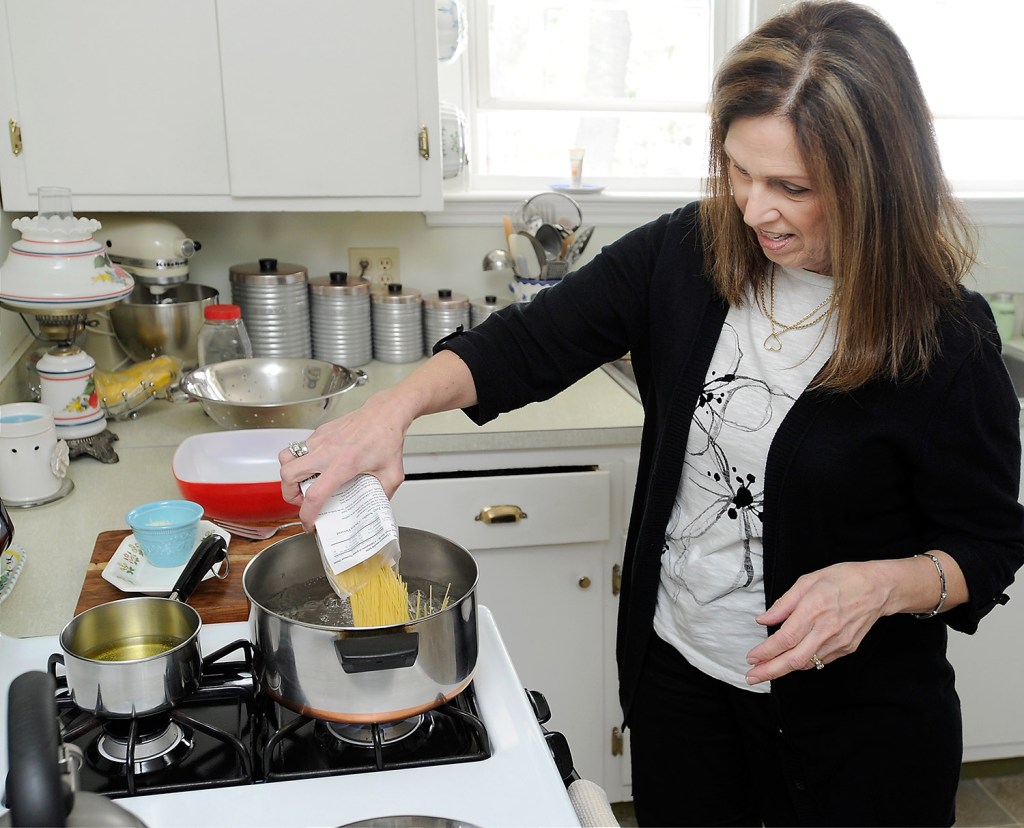
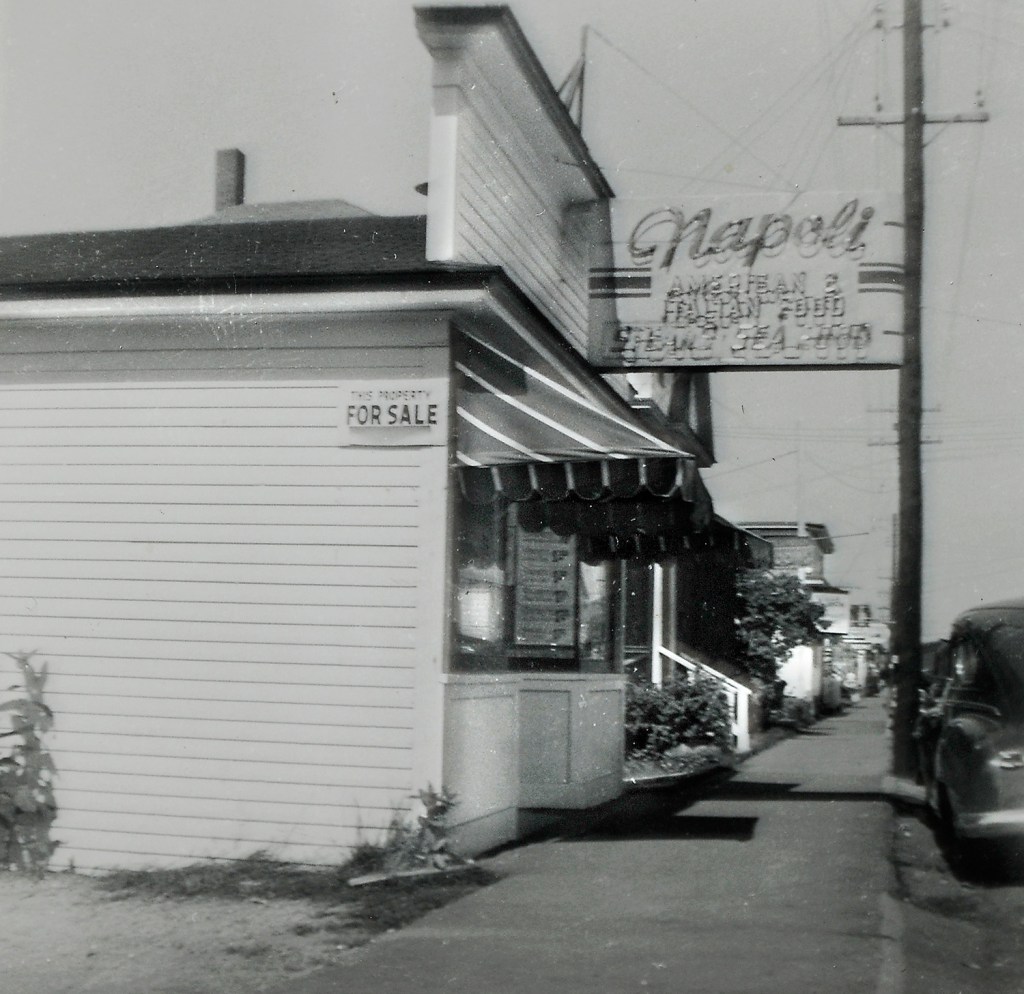
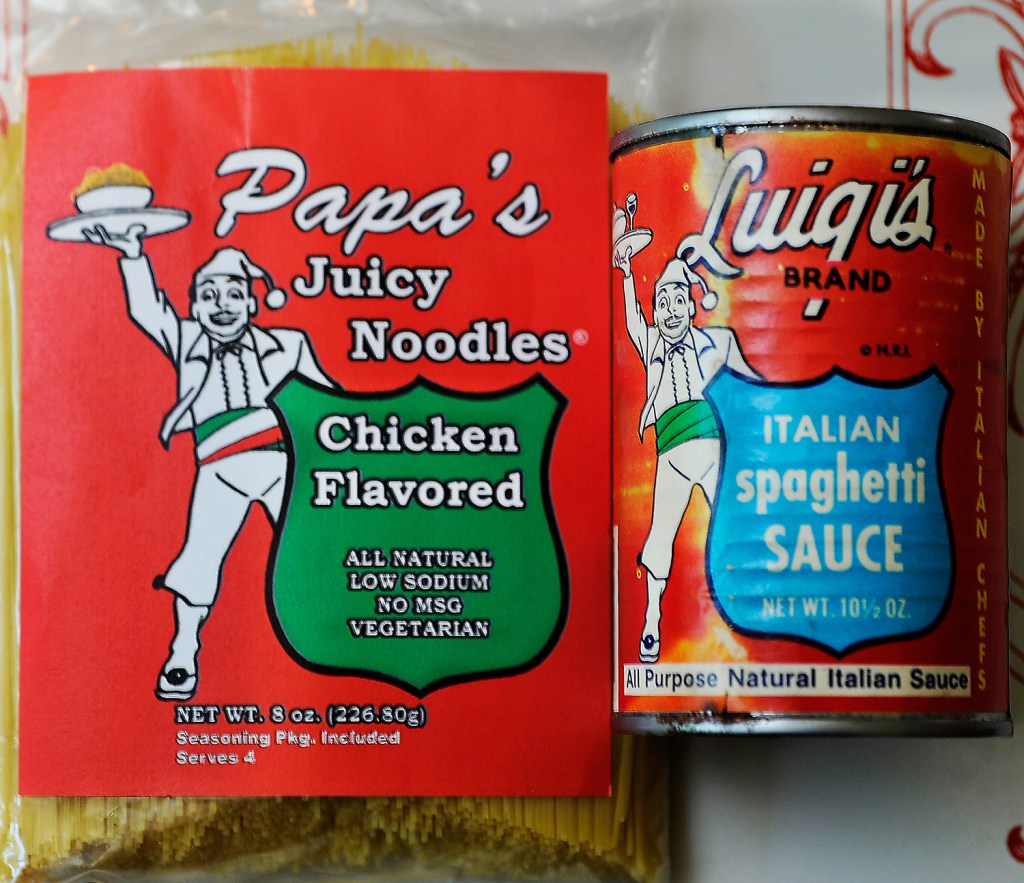
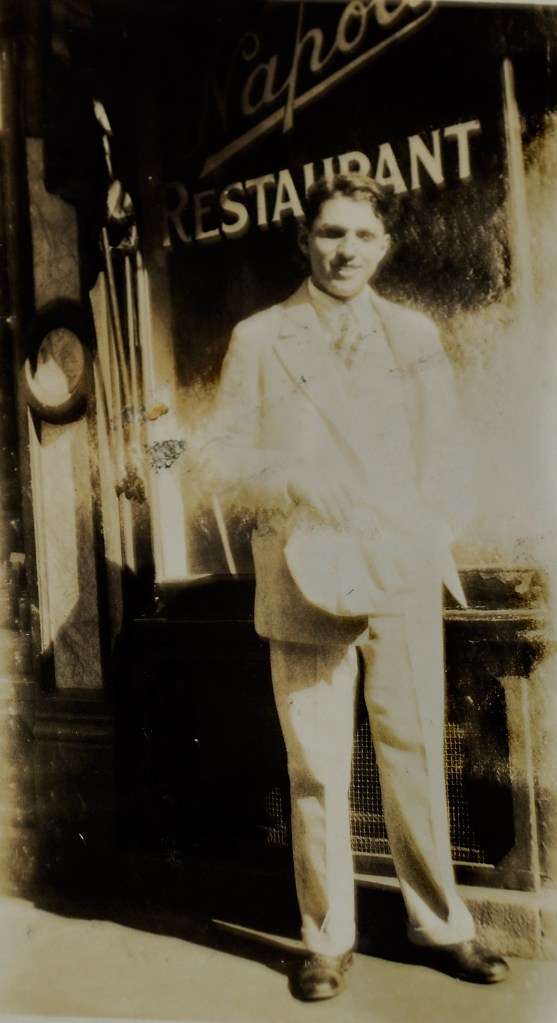
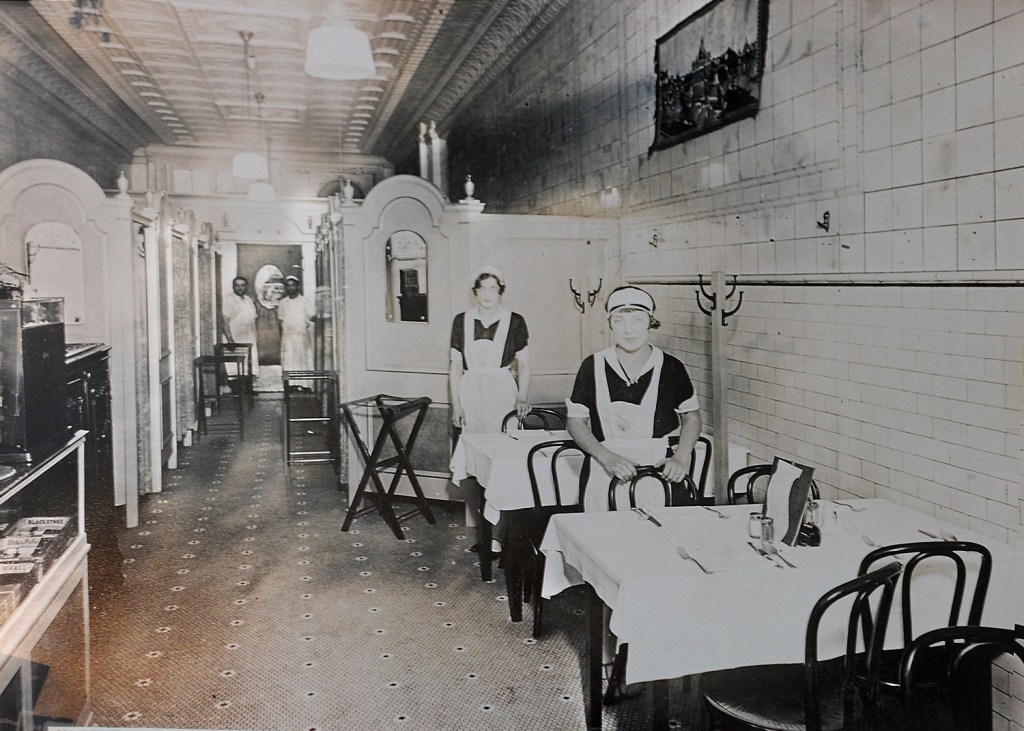
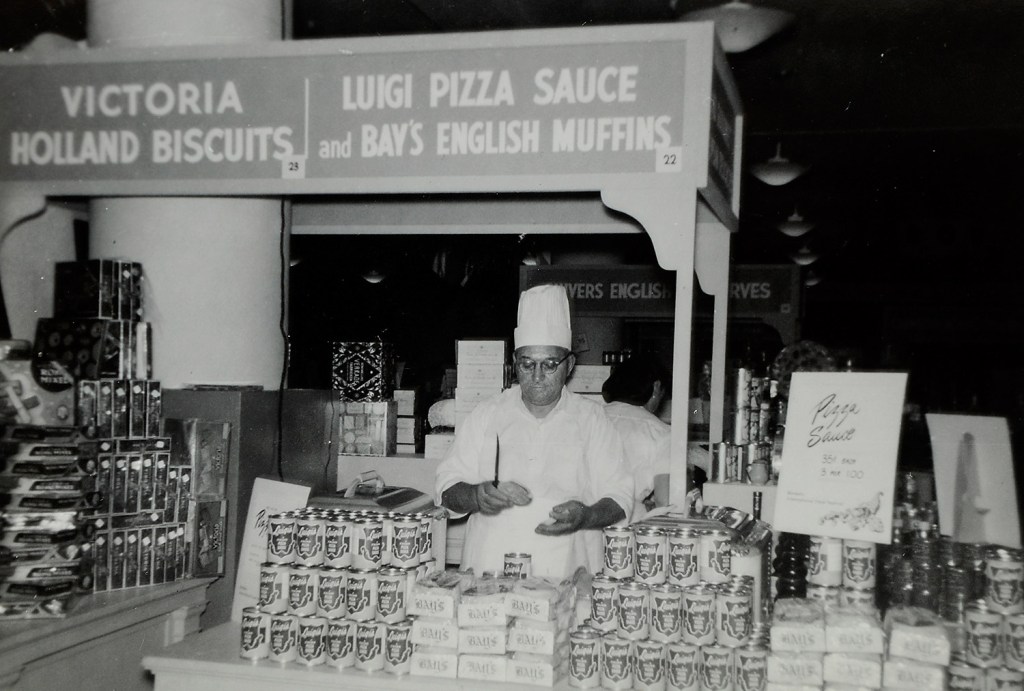
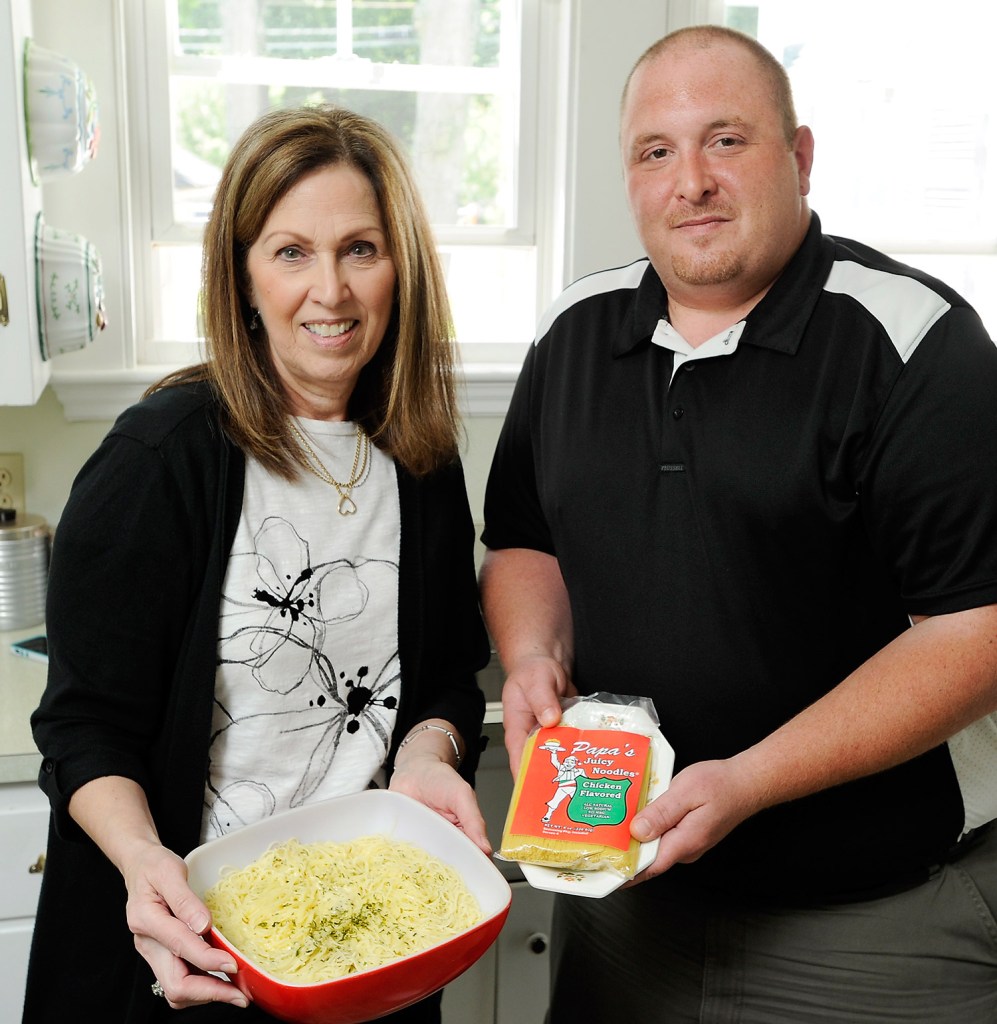

Success. Please wait for the page to reload. If the page does not reload within 5 seconds, please refresh the page.
Enter your email and password to access comments.
Hi, to comment on stories you must . This profile is in addition to your subscription and website login.
Already have a commenting profile? .
Invalid username/password.
Please check your email to confirm and complete your registration.
Only subscribers are eligible to post comments. Please subscribe or login first for digital access. Here’s why.
Use the form below to reset your password. When you've submitted your account email, we will send an email with a reset code.